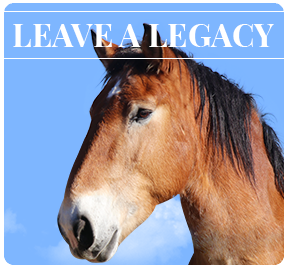Horsemeat: a Product of Cruelty, Dishonesty and Drugging
March 14, 2013 Animal Welfare Institute eAlertOriginal article
Horses are not raised for human consumption in the United States and are regularly administered drugs that are expressly prohibited by federal regulations for use in food animals. While the drugs may be perfectly suitable to treat injuries in horses, the Food and Drug Administration (FDA) has declared that hundreds of them—including some highly toxic to humans—are “not for use on horses intended for human consumption.” For example, a common pain reliever routinely administered to all types of horses, phenylbutazone or “bute,” is known to cause potentially fatal human diseases.
There is currently no system in the United States to track medications given to horses to ensure that horse meat is safe for human consumption. A recent New York Times article highlighted the plethora of drugs used on race horses—including cobra venom and cocaine—and the resulting food safety threats. Thousands of these horses are sent to auction—and subsequently on to slaughter in Canada or Mexico—within hours or days of their last race, virtually ensuring that these toxins are in the horse meat that is sent overseas. Many substances and drugs regularly used on horses have never been tested on humans; the potential danger of ingesting these chemicals is completely unknown.
Despite opposition to horse slaughter from bipartisan leaders of New Mexico, including Governor Susana Martinez, Attorney General Gary K. King, and State Land Commissioner Ray Powell, D.V.M, the U.S. Department of Agriculture (USDA) has announced plans to process an application for inspecting horse slaughter operations at a facility in New Mexico. If the application is approved, Valley Meat Company LLC—suspended twice by the USDA in the last 1.5 years for violations of the Humane Methods of Slaughter Act—will be the first facility in the United States to slaughter horses for human consumption since 2007.
AWI has long exposed the widespread cruelty and dishonesty of this industry—from inside the slaughterhouse to the backroom dealings of killer buyers misleading horse owners and now to the store shelves of European grocery stores. Against this backdrop, the federal government could now potentially spend its limited fiscal and staffing resources to open new horse slaughter plants at a time when forced spending cuts are already severely affecting animal welfare and food safety inspections for U.S. meat products. In the midst of the public commotion over horse meat, a positive development is the introduction of legislation, the Safeguard American Food Exports (SAFE) Act, by Senators Mary Landrieu (D-LA) and Lindsey Graham (R-SC) along with Representatives Patrick Meehan (R-PA) and Jan Schakowsky (D-IL). This bill would ban horse slaughter in the United States, while ensuring American horses are not exported to Canada or Mexico for the same purpose.
What You Can Do
Please email, call or write your Representative and both Senators today and urge them to cosponsor and act immediately in support of the SAFE Act, before horse slaughter has the chance to resume on U.S. soil.
Send an email via AWI’s Compassion Index or find your legislators contact information here. For more information on horse slaughter and how you can help, please visit AWI’s website.
Senate
Bill Name: Safeguard American Food Exports (SAFE) Act (S. 541)
Sponsor: Senator Mary Landrieu (D-LA) Senator Lindsey Graham (R-SC)
House of Representatives
Bill Name: Safeguard American Food Exports (SAFE) Act (H.R. 1094)
Sponsor: Representative Patrick Meehan (R-PA) Representative Jan Schakowsky (D-IL)






